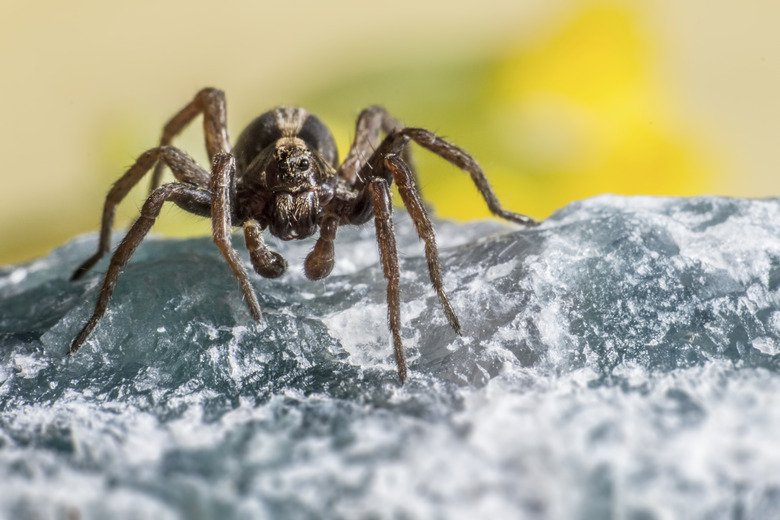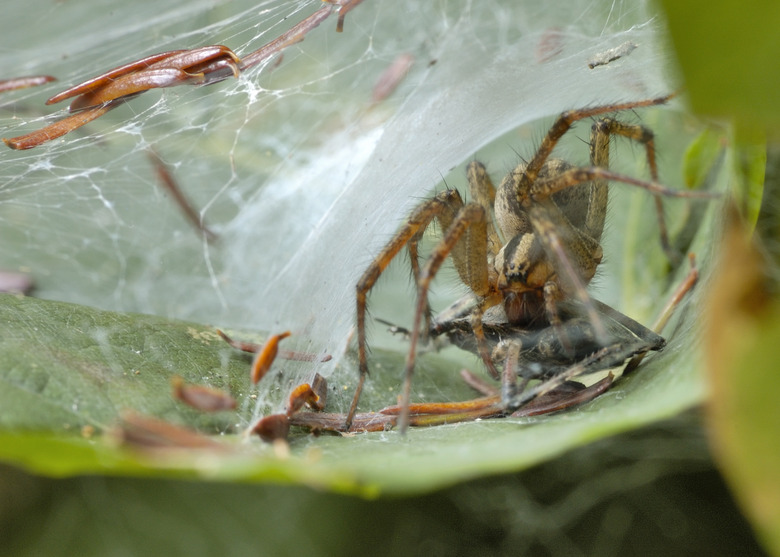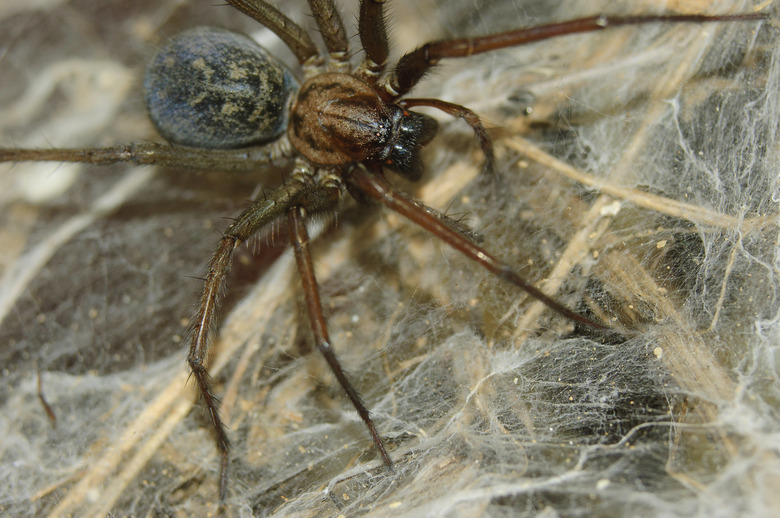My Yard Is Covered In Wolf Spiders
Wolf spiders belong to the Lycosidae family. Dozens of species of wolf spiders from 13 genera live throughout the United States, from the cold, moist climes of New England to the arid deserts of Texas. Many homeowners find wolf spiders on the lawn and throughout the house. Wolf spider infestation occurs for various reasons and may be difficult to manage. However, managing spiders is not always encouraged.
Wolf Spider Habitat
Wolf Spider Habitat
Wolf spiders spin webs, but only as a protective measure, not as a habitat. Rather, wolf spiders live in natural hollows or those that they create. Most wolf spiders live in holes in the ground and spin webs over the entrances of these holes to protect them when they sleep. If you have a yard composed of loose, porous or otherwise well-aerated soil, wolf spiders may be attracted to it as it proves an easy surface for them to dig and create homes in. Or, if you aerate your soil by creating small holes, wolf spiders may live in those holes. Wolf spiders also make homes under rocks, in piles of wood, in tree-root hollows and other similar spaces. The presence of any of these in your yard may attract wolf spiders.
Wolf Spider Habits
Wolf Spider Habits
Wolf spiders aggressively hunt prey, rather than waiting for it to appear on their web as many spider species do. Common food for wolf spiders include grasshoppers, crickets, beetles, roaches, ants and other spiders. Though wolf spiders prefer certain species, they will eat any insect available in times of food scarcity. If a bountiful supply of crickets, beetles, ants, grasshoppers and other similar insects live in your grass, your lawn is basically an all-you-can-eat buffet for wolf spiders.
Wolf Spider Management
Wolf Spider Management
An integrated approach to pest management proves most effective when managing the presence of spiders. Pesticides prove useful in controlling spider populations, though do not suffice as the sole means of control. Always be wary when applying pesticide to your lawn, as it may kill beneficial insects such as ladybugs. Controlling the food supply of wolf spiders through pesticides deters their presence, as does decreasing the number of potential wolf spider habitats on your lawn, such as woodpiles and rocky structure. Wolf spiders prefer spending the winter indoors. Caulking any holes or cracks in the surface of your home or any buildings like wood or tool sheds encourages spiders to seek shelter elsewhere.
The Benefits of Wolf Spider Infestation
The Benefits of Wolf Spider Infestation
Many sources recommend against spider management. The University of Maine lists spiders, and wolf spiders in particular, as the most beneficial insects in the garden and home. Spiders, especially active predatory spiders like wolf spiders and jumping spiders, help maintain populations of garden and house pests like Japanese beetles, aphids, flies and mosquitoes. Unlike species such as the black widow or brow recluse, wolf spiders do not possess powerful venom. According to a report by University of Minnesota entomologists, bites from spiders with weak venom prove less damaging than a bee sting. So, while wolf spiders look scary, they prove more helpful than harmful.




